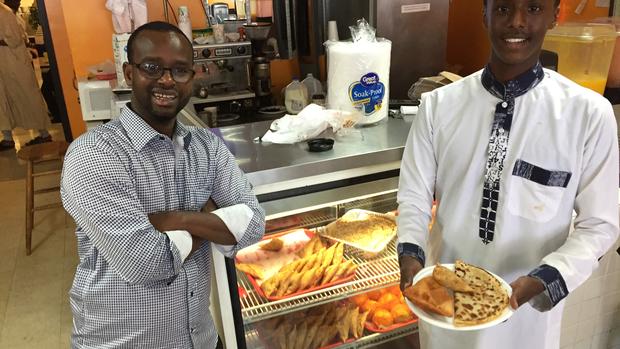WILLMAR—A recent survey indicates about 12 percent of all the businesses in Willmar are owned by minorities.
The survey also indicates that the new Americans who own nearly 70 businesses currently operating in Willmar view the town favorably—calling it safe and quiet.
Conducted by the Kandiyohi County and City of Willmar Economic Development Authority and funded with a grant from the Southwest Initiative Foundation, the survey provides the community’s first solid look at diverse businesses in the city.
The 23 questions on the survey also provide a baseline for the EDC’s Business & Expansion Program for diverse businesses. Topic areas identified in the survey include types of businesses, products and services provided, trade areas, number of employees, space and utility needs and views of the community.
“There’s a lot of information here,” said Aaron Backman, executive director of the EDC, who conducted face-to-face interviews with 18 diverse business owners between February and July.
The project also involved creating a list of the known minority-owned businesses, including the business name, address, owner’s contact information, type of business and how many years the business has been in existence.
Backman said the EDC has identified 31 East African businesses, 27 Latino businesses and at least eight Asian businesses.
Most of the diverse businesses were created in the last 10 years as the area saw its diverse population increase.
“New Americans bring with them their families, new ideas, cultural experiences, and entrepreneurial spirit,” Backman wrote in the executive summary of the report. “New Americans in Willmar have been establishing new businesses in the community.”
In a report last week to the EDC’s Joint Powers Board, Backman said the oldest Latino business has been operating in Willmar for nearly 20 years, but 48 percent have been operating for 10 years and 19 percent started within the last two years.
Because Somalis moved to the area later, their businesses are newer, Backman said, with most operating fewer than 12 years and 32 percent starting within the last two years.
The report said it “would appear that the Somalis are creating businesses in Willmar at a faster rate … especially over the past five years.”
The EDC interviewed one Asian business that was established in 2016.
The report states that the most common Somali business was food-related, including restaurant and grocery, followed by transportation, clothing/general merchandise and cell phone.
Food businesses were also the top enterprises for Latinos, followed by auto repair/service/sales and construction contractors.
Most of the diverse businesses are located in downtown Willmar.
According to the report, about 75 percent of Somali businesses are located either on Litchfield Avenue or Fourth Street Southwest in downtown Willmar.
About 33 percent of the Latino businesses are located downtown but 66 percent are outside the downtown area, including on U.S. Highway 12 and First Street.
There were other differences, including ownership and renting business space.
Backman said of those surveyed, eight of nine Somali business owners lease their buildings but six of eight Latinos who own businesses also own their buildings.
While the Somalis who were surveyed said their most frequent trade area was 11 to 15 miles from Willmar, Latino businesses reported their most frequent trade area was 51 to 100 miles.
Backman said one Latino grocery store owner told him customers came from as far away as Fargo, North Dakota, and from South Dakota because of the specialty ethnic items in the store.
When asked, a majority of the business owners had good things to say about Willmar and that the residents were “good people” and “nice.”
Only one business owner mentioned ethnic discrimination and he himself did not experience it, according to the report.
Most said there were no weaknesses in the community.
The report questioned, however, if that response reflected a “high level of satisfaction with the community” or if it indicated a “reticence by new immigrant groups to disclose negative comments about the community to a government representative.”
Several Somali business owners did say there was a need for more downtown parking, and Latino business owners said there was a lack of activities and attractions for youth.
Backman said conducting the survey was a “very good learning experience,” gave the EDC positive exposure to diverse business owners and helped facilitate the start-up of two new diverse businesses and one expansion.
West Central Tribune by Carolyn Lange

